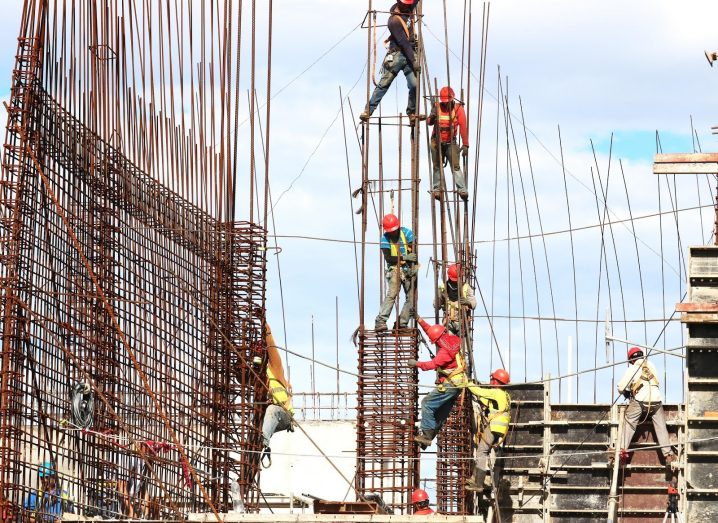If you’re always the first person to break out a toolbox and others also see you as a jack of all trades then you should maybe seriously consider becoming a construction worker. It’s a job that offers a really wide range of opportunities – from building things to tearing them down – so there is certainly something you will find appealing in the mix. There are so many positions available – demolition, commercial projects, residential construction, tunnel excavation, highway construction, etc. – all you need to do is take your pick.
Nevertheless, like every career out there, it requires a certain amount of knowledge and a different set of skills. Going up the career ladder also requires certain character traits. But, as far as skills and knowledge are concerned, it’s possible to acquire them along the way. We’re here to let you know everything that will make you the right person for this kind of work.

What to Expect
The first step to choosing any career out there is to be sure you’re one hundred percent willing to commit to it and pursue it. Otherwise, you’ll just be wasting your time doing something you actually don’t want to do. Each job out there has its own unique working conditions and, when it comes to construction workers they pretty much need to be prepared for anything – such as exposure to hazardous materials or challenging heights. They need to be willing to work in any conditions Mother Nature throws at them – rain, sunshine, snow – although some projects may pause for inclement weather. Of course, what you can get in return is proportional – a rewarding career full of variety, allowing you to pursue the specialties which interest you. Also a very flexible one, including working hours which vary by season, location, and the particular job. While indoor jobs usually run year-round, outdoor ones may have to pause during winter. New home constructions come with a nine-to-five schedule, while highway construction is usually a night shift. If these expectations suit you, let’s see the requirements.
Education
For entry-level construction workers there usually aren’t any specific educational requirements. If you’re starting out as an apprentice laborer you’re expected to have a high school diploma or at least GED. Although if you seriously plan to pursue construction, classes in welding, shop, physics, math, and English can certainly come in handy. Despite the fact that qualifications to become a construction worker usually don’t include college, receiving certification for specialized labor is certainly an advantage. The reason is simple – specialists such as electricians, heavy equipment operators, and welders earn more money than someone who is simply a jack of all trades. While there are a number of courses for construction where you can obtain a diploma, the experience is also a great part of learning so you shouldn’t put your job on hold. For this reason one of the best options available today is in an online environment, where the course offered doesn’t include a classroom nor deadlines, so you can simply study where you want, and when you want.
Experience
As for the experience, most workers gain it while doing jobs under the guidance of experienced workers. You can learn a lot of things informally, but there are also formal apprenticeship programs which may come in handy. They generally include two to four years of on-the-job training and technical instruction. First, they teach you basic construction skills, such as health and safety procedures on-site, the correct use of equipment and tools, and how to read blueprints. Then it’s off to specialized skills training which consists of three of the largest construction industry segments: environmental remediation like asbestos or lead removal, highway and heavy construction, and building construction. These apprenticeship programs are usually sponsored by several groups such as contractor associations and unions.
Skills
Of course, there is a set of desirable skills you should already possess. Coordination is probably the most important one, meaning hand-eye coordination, depth perception, and balance – it is what keeps your fingers clear of bandsaws and what keeps you steady on high beams. The ability to coordinate the equipment, supplies, and crew is equally important as a promise of a great career in construction. Then there is a need to be physically up to the task, meaning stamina and strength. Construction work is all about pulling your weight and keeping up, especially in the beginning. This is no surprise since it’s a pretty physical job. You need to be cut out for physical labor, but that doesn’t mean you need to be the strongest guy in the crew – you can have other talents and skills that make up for it. Nevertheless, the ability to complete physical requirements is mandatory.
This is more of an educational part, but it’s also a question of skill – language literacy and math are much more important for construction than the majority of people would expect. As a construction worker, you’ll need to ensure that the right amount of building materials is available and ready, which requires some algebra and basic math. On the other hand, there is a lot of paperwork and if the documentation doesn’t make sense the company you’re working for will have trouble getting their books in order. So yes – reading and writing efficiently is also a desirable skill.
As you can see, although there aren’t many formal requirements, construction work does actually demand some education, experience, and a set of desirable skills. If you want to go up the career ladder, that is. And it would be a shame to remain a simple jack of all trades in a career that offers so many possibilities and can provide you with a financially secure future.



